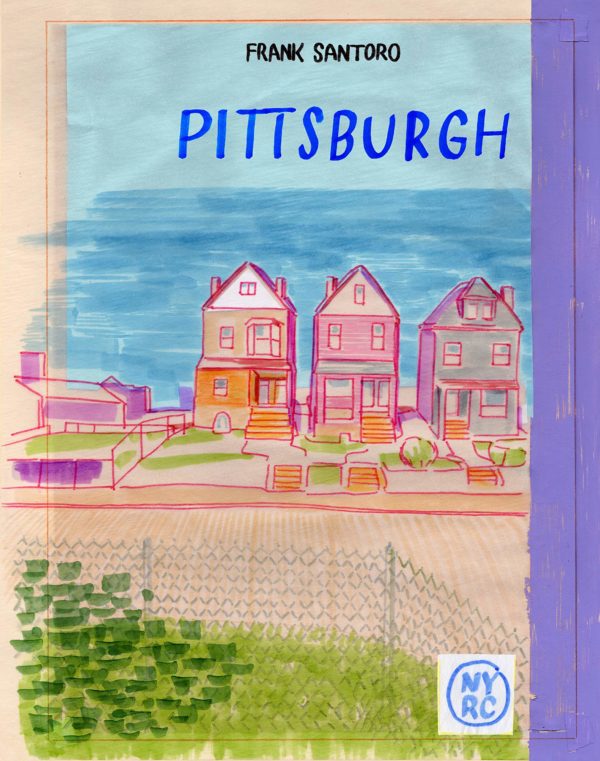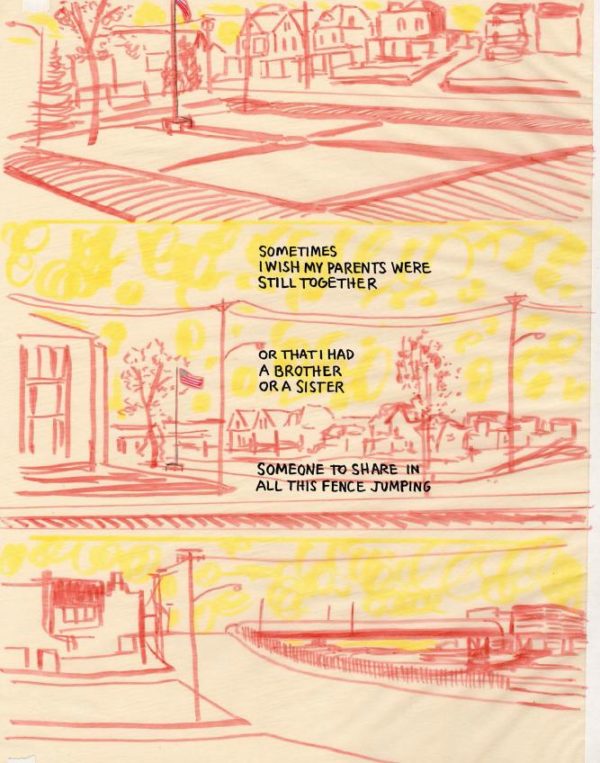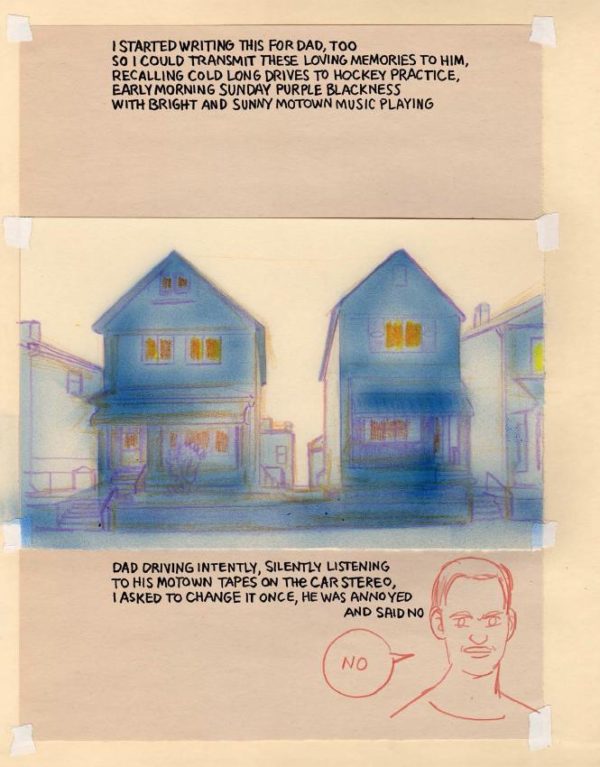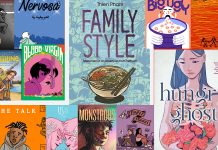Pittsburgh
By Frank Santoro
New York Review Comics
There are so many aspects of our lives that are decided before we ever step into the world, and they affect our decisions far into life. They are born of the relationships between our grandparents and our parents and their siblings, of the circumstances our parents find themselves in that are out of their control, of the locations all these ingredients fester in.
In Frank Santoro’s gorgeously-realized Pittsburgh, all these factors are taken into account in his autobiography, obsessively examining the relationship between his parents and his grandparents’ part of that dynamic, and then wrapping his hometown around all these dramas as if it were a container for his family’s love and anger.
At ground zero of Santoro’s troubles is his parents divorce. Twenty years later, he just starting to come to terms with how it has affected his actions, most notably staying far away in California despite a yearning for his hometown. His parents don’t make it easy for him though. At this point, he basically gets along with both of them, but their own dynamic casts a chill over his existence there. Santoro’s parents see each other every day since they work at the same hospital, but they never acknowledge each other. It’s as if the other doesn’t exist, a two-way agreement to pretend that life is a continuance of the circumstances before Santoro was born, before they ever met each other.
It has the trappings of an alternate world, but when Santoro interacts with them individually, they have little choice but to address the existence of the other. He is proof that their marriage once existed, and in Pittsburgh, he pours over his memory to provide further documentation, even transcribing stories and conversations with his grandparents that offer further irrefutable proof. He tries to figure out his place and their place in the event. He tries to figure out what in the world his parents were thinking during the event.
Part of it has to do with his father’s Viet Nam experience, no doubt. Less than a year in the war and sent home due to circumstances that were both horribly tragic and a little absurd, Santoro’s dad is permanently rattled by his experience and though he tries to settle into normal life as expected, he doesn’t excel at it. There’s something missing.
But for young Frank, there’s an urban neighborhood at his disposal, with a convenience store owned by his grandfather, as well as a friendly godfather, that help fill his life as an only child. Kept at a distance from the inner-workings of grown-ups, Santoro still manages through later conversations to eke out some of the truth behind his recent family history and in doing so, craft a loving portrait of the neighborhood and the city that this all takes place in.
Santoro is like a tour guide through his own psyche, offering multiple studies of his family members in intense color, as well as the rooms in their houses, capturing an intimacy that comes through in people’s personal space but with the moody abstractions of thick color lines. He spends equal amounts of time on places in Pittsburgh, offering views of alleys and streets and factories, and presenting revealing, heartfelt conversations in the car while the city of Pittsburgh whirls by in the background.
In the end, it’s hard to say whether Santoro has come to terms with the demons he portrays, but it’s for certain that his attempts to do so are worth anyone’s time, an impressive melding of clarity and emotion directed toward personal history within a physical space. Pittsburgh is, on multiple levels, home and Santoro has crafted a loving, complicated portrait of what makes it so.












I am so upset i missed you speaking at carnegie. I want to read your new book where can i buy it. i walked up to 2 people the other day eating and I said oh sorry i thought you were patrick. Looked just like your side kick from long time ago :-) I guess I lost my mind and that guy was a twin. You speak older it was so neat to hear you speak in the residency video clip. That is the most I have heard you speak in my life. My mom died and I missed lorissa osby I had no idea till later.I have vertigo and hard for me to get around so I draw at home like a fool and lets see what els. I love your dog you were riding around in the car that cheered my spirits up made me laugh in your video clips. My pantone markers were stolen i was devistated only to find out at the art store that they were such an old brand they dont even make them anymore or do they. Nice to see you doing what you love. I hope this small note to you finds you in good health and spirits. I will never forget you feeding your other doggie you had spagettio’s off of your spoon. I am interested to get started with a book. It’s not suppose to take this long to do it. if you teach this I would like to try. Thanks for reading I will stop typing now. enjoy the hours going by. Teri Who? :-) Who Dat? your work is so good i really want to buy/read the new one you wrote. I hope I can figure out how to try to try. listening to you was interesting when you were speaking. very neat. I am a terriable researcher if you can send info reguarding your classes on spreads for comics. Thanks for reading.
Comments are closed.